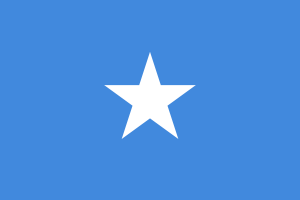Language/Somali/Vocabulary/Meals-and-Dining
As a Somali language teacher with 20 years of experience, I am excited to teach you vocabulary related to meals and dining in Somali. Not only will you learn words for breakfast, lunch, and dinner, but also essential terms for utensils and table settings. Knowing these words will not only come in handy in day-to-day conversations, but also when traveling to Somalia or speaking with Somali speakers.
With the completion of this lesson, consider investigating these related pages: Numbers & Feelings and Emotions.
Meals in Somali
In Somali culture, meals are an important time for family and friends to gather and share stories. It's a time to bond over delicious food and drinks. Here are the most common meals in Somali:
- Baraawe (breakfast)
- Qado (lunch)
- Casho (dinner)
It's worth noting that meals in Somali are not strictly divided into the traditional Western categories of breakfast, lunch, and dinner. For example, if you go to a traditional Somali restaurant, you may find them serving breakfast items like pancakes and eggs all day long.
Utensils
Here is some vocabulary for utensils and table settings in Somali:
| Somali | Pronunciation | English |
|---|---|---|
| Sijjin | si-jin | utensils |
| Yar | yar | spoon |
| Foon | foon | fork |
| Koonfur | koon-foor | knife |
| Dakhtarka | dakh-tar-ka | plate |
| Shish | sheesh | glass |
| Koofi | kooh-fee | coffee |
- Somali cultural note:
Traditionally, Somalis eat with their hands rather than utensils. This is due to the nomadic lifestyle of Somalis which made utensils impractical. It's no surprise that even today Somalis eat with their hands as it is natural, hygienic, and practical when eating certain dishes.
- Useful phrases:
Here are some phrases you may find useful when dining in Somalia:
- Miyaanay martitaadat ka loo yeelan karnaa? - Can we please have the menu?
- Waa maxay macaan ku leh? - What's delicious here?
- Dibadda fadlan - Excuse me, can I have your attention?
- Aad baad ugu mahadsan tahay - Thank you very much
- Practice:
Here are some sentences for you to practice using the vocabulary we've learned:
- Waan jeclahay runtaada sijjada. - I like your utensils.
- Qado ha ka soo jeedaakus gacan. - Don't eat lunch with your hands.
- Waxaan u qaadanayaa dhakhtarka cusub. - I am using a new plate.
- Aad baa u mahadsantahay. - Thank you very much.
I hope you found this lesson helpful and informative. Next up, we'll be diving into Somali customs and traditions, including greetings and etiquette. Stay tuned!
Other Lessons
- Drinks
- Count to 10
- Family and Relatives
- How to Say Hello and Greetings
- Animals
- Colors
- Food
- Modes of Transportation
- Offering or asking for help
- Directions and Locations
Sources
- English-Somali Dictionary | Migration Stories
- English to Somali Meaning of eating - cunidda
- Somali Culture - Etiquette — Cultural Atlas

